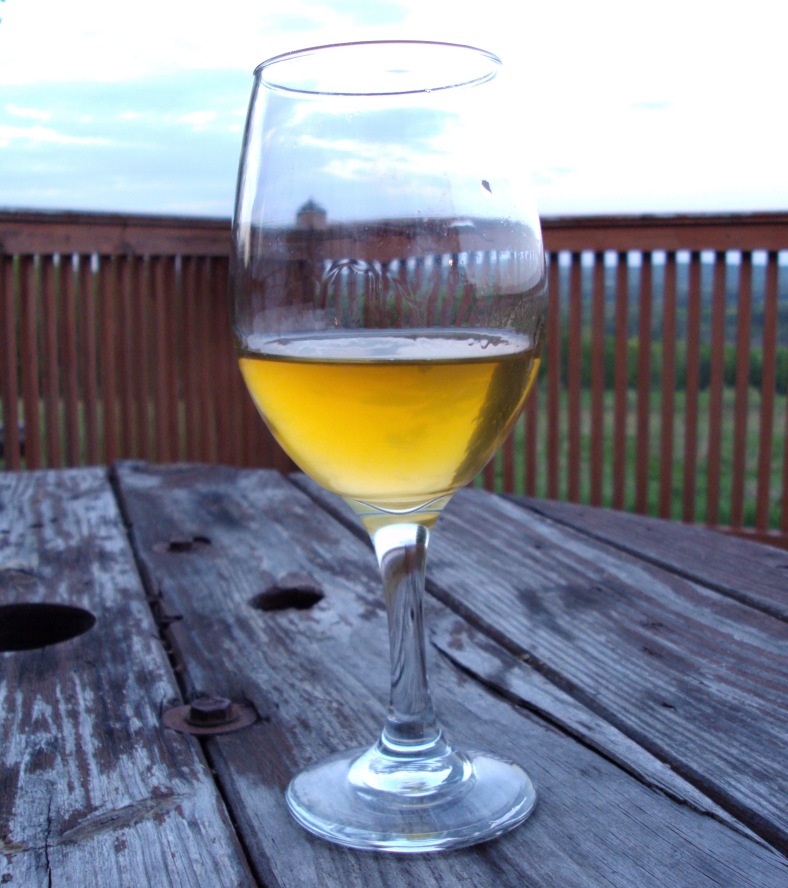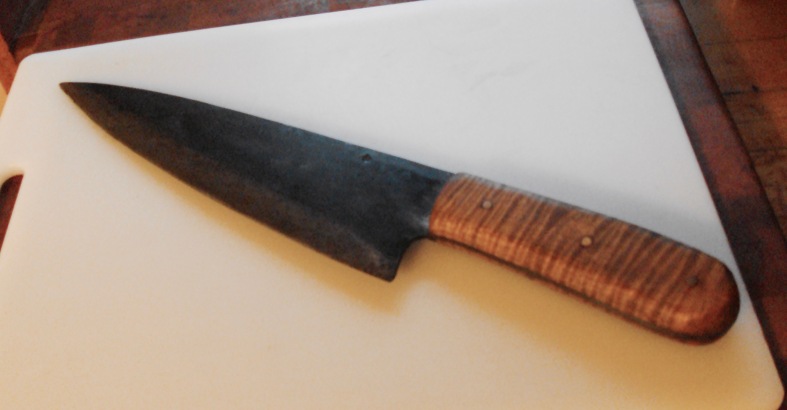
For someone wanting to forage wild foods, dandelion greens aren’t a bad place to start. For one, they’re everywhere. Some might even call them invasive. You don’t have to go far to find them and they’re easily identifiable. You’re looking for the young, tender leaves, best picked before the plant flowers.
They’re super easy to prepare. While some foraged foods require repeated soaking or boiling with multiple changes of water, dandelion greens cook just like any other green. Although they taste totally different, they can be substituted for spinach in any recipe. I’ve seen dandelion green salad, sauteed with bacon and red onions. I’ve never made it, but dandelion green pesto seems intriguing. And perhaps you’ll notice my dandelion green calzone in the attached image. I made it with Italian sausage and feta. The crust was sourdough. You can make dandelion wine from the flowers. Just about ready to bottle, I have a batch aging in the cellar. With some imagination, the possibilities are endless.
Making no absolute health claims myself, dandelions are also reputed to have some medicinal benefits. Tonics made from dandelions and burdock are made by some in the spring and are said to aid in detoxifying and promoting healthy liver function. Again, I make no health claims. Nutritionally, they are full of vitamin A and hold a fair amount of vitamin C. Respectively, one cup will give you 100% and 30% of your recommended daily allowance. In his books on Wild Fermentation and The Revolution Will Not Be Microwaved, Sandor Ellix Katz mentions dandelions a few times. Living with AIDS, he holds food and diet as an important part in maintaining his health. At the very least, they’re a fresh, green vegetable. They’re something we’d all do well to eat more of.
As an Anarchist, dandelions can’t help but give you some inspiration. People hate dandelions. They want them gone. They want them out of their yards. Yet they persist. A multitude of products have been created and marketed to try and eradicate them. In some homeowner’s associations and in some municipalities, you will be in violation if dandelions aren’t kept in control on your property. You will risk fines, sanctions, and could possibly lose your home. The powers that be don’t want dandelions. They want them gone, yet they’re still here.
It’s all because they’re so prolific. You’ll probably remember blowing the white, puffy seeds when you were a kid, dispersing them all in one breath to obtain a wish. You may furthermore recall how many there were, hundreds of them on each plant. Actually blowing them all took a some lung capacity. Now, think about it. Each plant held the seeds for hundreds more just like it. Their growth was literally exponential. Hate them all you want. Pass every law and ordinance you can think of. Punish people as collaborators for letting them exist. Use the full force of government to try and eradicate them. But they’re still here. They’re just too good at doing their thing.
Ben Stone, The Bad Quaker, talked a little about this. He’s retired now, but some of his old podcasts are available on iTunes and on badquaker.com. Talking about marijuana legalization, he once proposed that a strain of marijuana should be engineered that proliferated just like dandelions. If we could accomplish that, if every pot plant put out hundreds of seeds that scattered with the wind, and if each plant in the next generation did likewise, there would be absolutely no way it could be effectively outlawed. There just aren’t enough jails. The drug war, already widely regarded as a failure, would effectively be done. How can you stop something so widespread and common?
And the real value here is that this particular freedom would then be achieved completely independent of authority. It’s not begging for freedom. It’s achieving it. You see, making no judgement about whether or not it’s wise to consume or smoke it, the fact that marijuana is illegal is an absolute affront to our self ownership. If we don’t have autonomy in what we consume, we are not free. Some do advocate going through the legal system to change this. They say that we should be writing our congressmen and speaking up at town meetings. We should be petitioning those in authority to reverse their unjust decision. My lord, please reconsider. The problem with that is that doing so acknowledges that authority. It concedes that those in power have the right to make that decision. People can rightly tell us what to do. Hogwash. Malarky. Nuh uh.
And please don’t get hung up on pot. How many other nonviolent and victimless crimes could this apply to? In my state of Maine, switchblades have only recently been legalized. In the 1950s, after seeing West Side Story and with apparent concern for the horrifying gang violence it depicted, legislators forbid possession of any knife that could be opened one handed. The law was only repealed last year. Really, most people didn’t even know it was a crime. Any number of knives having knobs on the blade or other mechanisms facilitating quick opening were readily available at Walmart. I had one and so did a lot of my friends. Actual switchblades could occasionally be found at junk shops. They were so widespread and innocuous that people just kinda forgot that they were illegal. Police didn’t waste time on enforcement. Formally legalizing them was an unnecessary afterthought.
The real way, the only ethical way, to bring about a peaceful and nonviolent society is to just live your life. Be an example. Demonstrate that your way is better and more fulfilling. Be free, and maybe, just maybe, that will catch on. Maybe others will start being free themselves. Maybe they’ll inspire still more. Soon enough, the people who choose violence will be powerless against this freedom. There’ll just be too much of it. Stamping it out just won’t be possible. And maybe the people who fancy themselves in charge will change as well. Maybe freedom will come, just like dandelion seeds in the wind.








 In this installment, I’m going to talk about how authority is clumsy, awkward, restricting, and dangerous. I’m going to give you a very decent recipe for a rice pilaf. But I’m also going to explain how you shouldn’t necessarily follow it.
In this installment, I’m going to talk about how authority is clumsy, awkward, restricting, and dangerous. I’m going to give you a very decent recipe for a rice pilaf. But I’m also going to explain how you shouldn’t necessarily follow it.